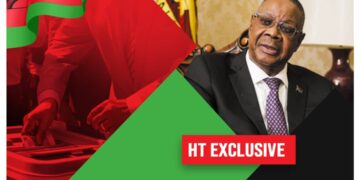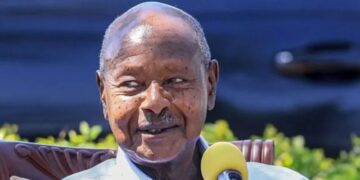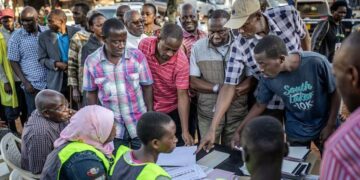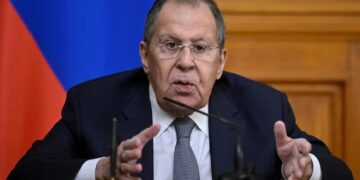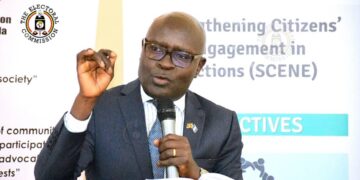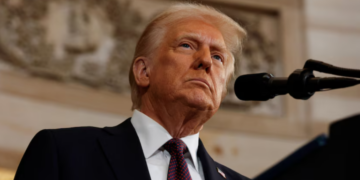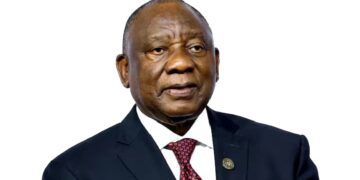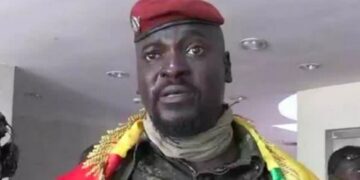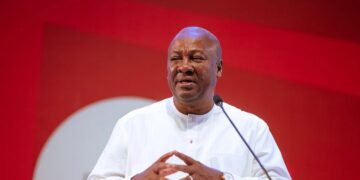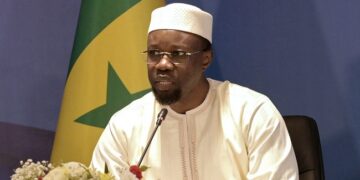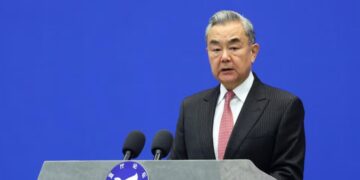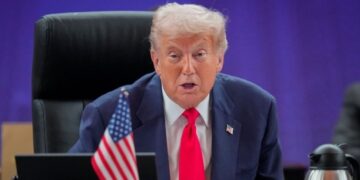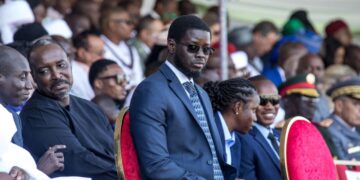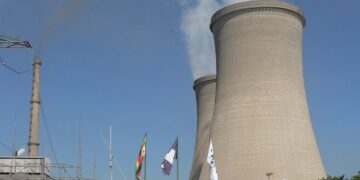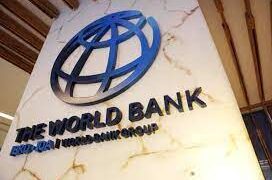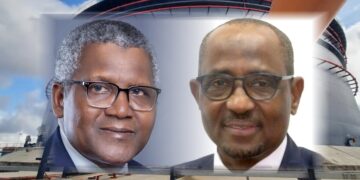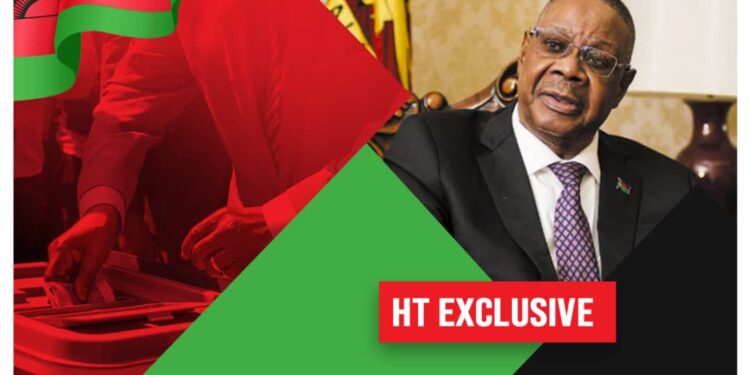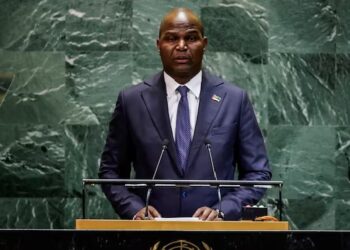By Enyichukwu Enemanna
The recent re-election of former professor of law, MP and Minister, Peter Mutharika as President of Malawi has attracted divergent reactions from political observers across Africa. While some have argued that the return of the 85-year-old son of teachers who had ruled the Southern African nation from 2014-2020 was clearly a setback in the campaign for inclusion of young people in the boardroom, others believe that quality of governance under the relatively young President Lazarus Chakwera, 70 is on a free fall, causing the approximately 22 million population the worst economic crisis in recent times.
Irrespective of which side of the divide one belongs, what is more paramount is that voters in Malawi have compared their security and welfare under both leaders, which to a large extent guided their decision. During the campaigns, Mutharika who has repeatedly claimed that he won the 2019 election which was upturned in favour of Chakwera through a court ruling informed voters that life was simply better under him, a claim most Malawians were in agreement with.
According to official results, Mutharika secured 56.8% of the vote to stop his long-term political rival, Chakwera from clinching the top job for a second term, after leaving him with only 33% of vote. Possibly taking a cue from what happened in Nigeria in 2015, even before the final results were announced by the electoral body, Chakwera placed a call to Mutharika, conceding defeat and assuring a smooth transition of power. This shows that despite the plethora of challenges the continent is facing — politically and in leadership, there exists a ray of hope that democracy remains the only window that allows the people own their governance system.
Fading Arrogance of Incumbency
What Malawians demonstrated was that being a sitting President does not necessarily guarantee victory for the individual or the political party, rather it is the overall general assessment of the people — either rightly or wrongly. It shows that election is not a mere ritual or just fulfillment of political calendar, but a window for the people to recruit a leader they are convinced about, using the power in their thumb.
Fading are days when those in power sew their swearing-in regalia for fresh term even before the commencement of voting, with the hope that their victory is a “done deal”. Such arrogance and impunity are being tamed by the behaviour of voters, not just in Africa but all over the world.
There are other examples where voters tossed aside sittings President and their party, signalling a positive trend that has stamped the authority of citizens to hire and fire. Ghana’s worst economic crisis that continued unabated for years, leading to high inflation and a debt default, propelled the country’s former President, John Dramani Mahama back to power over incumbent Vice President Mahamudu Bawumia in last year’s presidential poll. Despite enjoying the backing of his boss, then President Nana Akufo-Addo and indeed all the paraphernalia of the state, Mahama from the opposition side bulldozed his way to victory.
In Botswana, after 58 years, the ruling party, Botswana Democratic Party lost last year’s November elections by a landslide. It was sacked by a coalition led by 55-year-old Duma Gideon Boko, leader of the Umbrella for Democratic Change. In Senegal, after futile attempt to cling to power, Macky Sall conceded defeat last March and ceded power to 44-year-old Bassirou Diomaye Faye. Also last year, South Africa’s African National Congress (ANC) for the first time in 30 years lost a majority in the parliament, relying on alliance to form government. Today, President Cyril Ramaphosa governs a fragile Government of National Unity (GNU) along with the opposition Democratic Alliance and eight smaller parties. Donald Trump of the Republican party also staged a surprise comeback to the White House during the last year’s election, defeating Democratic party’s Kamala Harris, then a sitting Vice President.
Sins of President Chakwera
Majority of Malawian voters are of firm belief that Chakwera fell short of meeting the quality of governance to unlock economic prosperity and enhance their livelihood. In fact, he was accused of presiding over hardship and large-scale corruption in the Southern African nation, losing his once waxing reputation for accountability.
Anti-corruption campaign was one of his core objectives. He took a number of steps when he came on board in 2020, which signposted a new beginning in tackling official graft and dismantling impunity. He ordered a sweeping audit of the ministries, departments and agencies. Officials who were found guilty by the Anti-Corruption Bureau (ACB) were tried. He promised that his government will be a vehicle for transformation of Malawi’s most vital sectors — food security, education, healthcare, water and sanitation, and energy.
Things however started taking a new twist when Chakwera was accused of political interference and being selective in his anti-corruption crusade, unleashing the full weight of the law on opposition figures but softer on members of his political family and allies accused of corruption. Such allegation of double standard led to the resignation of former ACB Director Martha Chi Zuma in 2024, complicating the issues further.
Under his leadership, the country also suffered what analysts believe is its worst economic crisis in decades. Inflation surged into double digits, gulping household incomes. By late 2023, consumer prices were rising about 28% annually, a devastating rate for a country where even before the crisis, over 70% of people lived on less than $2.15 a day.
Basic commodities inflated out of reach of the ordinary people, becoming luxuries for many. The local currency kwacha has been in freefall, losing more than half its value since 2022 after a series of sharp devaluations (25% in 2022, then a whopping 44% in late 2023).
The turmoil has been traced to a biting foreign exchange shortage that has left Malawi unable to pay for essential imports. Official foreign reserves dropped below one month’s import cover in 2023, effectively empty coffers. The result has been acute shortages of fuel, medicines, fertilizer and other basics. Motorists in the country had to endure fuel queues that stretch for several hours. There was an astronomical increase in public transport fare, goods shipments were brought to a standstill as trucks sat empty, and even ambulances in some hospitals were grounded for lack of fuel. This brought unprecedented inconveniences to Malawians, snowballing into national economic paralysis.
Under Chakwera’s watch, factories and businesses could not operate effectively, farmers could not get their goods to the market, and daily life is disrupted at every level by the acute energy shortage. Malawi’s debt situation deteriorated into a full-blown debt crisis. The government’s chronic budget deficits, reaching over 10% of GDP in 2023 and heavy borrowing has pushed public debt above 80% of GDP. By 2022, Malawi effectively defaulted on its external debt, and it has been in default ever since. Debt servicing became impossible amid the forex crunch, forcing the country to seek relief.
These and more own-goals under Chakwera compounded his political woes, leading to his landslide defeat at the polls. On the other hand, Mutharika’s supporters claim his first stint in power uplifted Malawi, pointing to the billions of dollars of Chinese loans he secured in order to revamp the country’s infrastructure. Inflation also dropped significantly during his first term. When he succeeded Joyce Banda, the country’s first female President, the inflation rate was at 24% percent, by the time he left, it had shrunk to single digits. Despite these, Mutharika’s tenure also saw blackouts, food shortages and more of the corruption scandals that have long plagued politics in most African countries.
Takeaway for Younger Leaders
Though Mutharika’s re-election is largely seen as a paradox especially amid the clamour for the old generation to give way for younger and more innovative leadership and against the backlash 92-year-old President Paul Biya has faced in Cameroon where he is expected to stand for a record eighth term this month in a presidential contest, it is a wakeup call for young leaders to raise the bar of good governance beyond the age game.
The agitation for democratic change of leadership is high in Equatorial Guinea where the 82-year-old Teodoro Obiang Nguema Mbasogo has been in power since 1979 when he overthrew and then executed his uncle. Same applies in Ivory Coast where President Alassane Ouattara, 83 is running for another five-year term late this month after 14 years in power.
It is a bit odd to watch the jubilation around 85-year-old Mutharika’s victory in Malawi, taking into account how young people, who should make the most meaningful impact in governance led the cost-of-living protests in February that helped send Chakwera packing.
Concerns have also been raised about Mutharika’s health and his stamina to carry out the arduous duty of leading the country at this time as he was rarely seen in the public during the campaign rally. Irrespective of that, Malawians have overwhelmingly trusted him as their leader, handing him victory even in areas such as Lilongwe, and Nkhotakota considered as Chakwera’s strongholds.
At an occasion, Mutharika was quoted as asking the public in the local Chichewa language: “Munandisowa eti? Mwakhaula eti? (You miss me right? You have suffered, right?)”. This clearly shows he is in touch with the people.
In Liberia, from the opposition corner, 80-year-old Joseph Boakai last year floored former football star, George Weah, 59 sending him packing after a scandal-rocked first term in office. This is a lesson for the likes of 44-year-old President Bassirou Diomaye Faye, 55-year-old Duma Gideon Boko and all other leaders across Africa, for them to purge themselves of incumbency arrogance and age advantage. They must govern in a way that answers to the needs of the masses who voted them.
In Nigeria, the speculation that former President Goodluck Jonathan will join in the 2027 presidential contest should give the sitting President, Bola Tinubu a reason to worry. With the way former leaders are being recycled on the account of citizens disenchantment, Tinubu’s administration must not dismiss with a wave of hand plethora of holes citizens have picked with his administration, regarding his record with rule of law, human rights, economic policies and national security.
